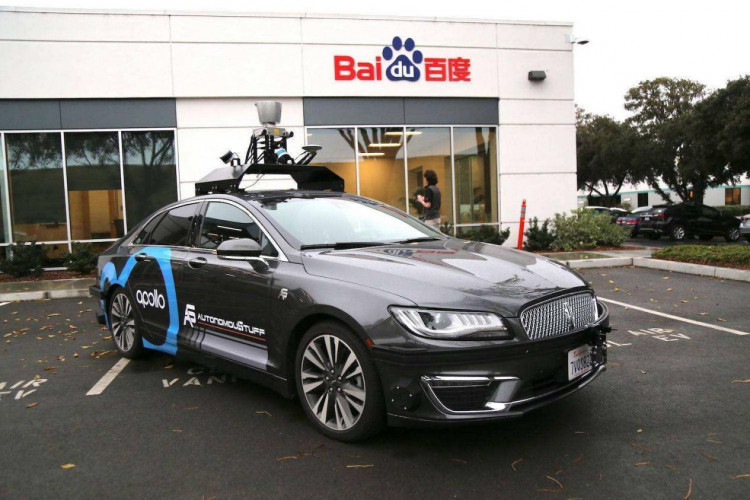Shares of China's internet search leader, Baidu Inc., rose as much as 13.83% closing at $185.5 per share Tuesday, following reports of its interest in manufacturing its own electric vehicles.
Like its foreign rival Google, Baidu has been pioneering autonomous driving technology for years. It is in talks with more than one domestic auto manufacturer about the possibilities, Reuters reported, citing people with knowledge of the matter.
Sources told Reuters that Baidu is exploring options in contract manufacturing or creating a majority-owned venture with automakers.
Baidu declined to comment.
A Logical Extension
As the auto industry is transforming from a hardware-heavy approach to a software-centric one, tech companies play an increasingly critical role.
If these efforts come to fruition, Baidu would join other tech giants that have migrated into the auto manufacturing sector, such as last month's announcement that Huawei joined hands with carmaker Changan to create a new car brand.
Domestic automakers including Zhejiang Geely Holding Group Co., Ltd., Guangzhou Automobile Group Co., Ltd., (GAC) and China FAW Group Corp., Ltd., brand Hongqi have had preliminary talks with Baidu on possible ventures, sources told Reuters.
GAC said it has formed strategic agreements with Baidu and is waiting for further discussion of the cooperation. Geely said it "hasn't heard of the news," while FAW declined comment.
Geely, which owns both Volvo and Lotus, has teamed up with Baidu in July 2019 to work on artificial intelligence with the Apollo self-driving car program. This open-source software platform aimed to develop collaboration across the auto sector to speed up development of self-driving cars.
Early this month, Apollo Go Robotaxi got the green light for fully driverless road tests in Beijing. Making use of AI driving systems, five test autonomous vehicles in the public trial are being allowed to drive on the capital's public streets without a safety driver aboard.
Automakers Volkswagen AG, Toyota Motor Corp., and Ford Motor Co. have also been reportedly working with Baidu on autonomous driving projects since 2017.
Analysts from Soochow Securities said in the near future autos will be priced upon the electronic and intelligent features and recurrent charges based on software will lead the future profit model.
A Cloudy Future
Baidu generates the majority of its revenue from online advertisements. China's stricter internet search rules, as well as the U.S.-Sino trade war, point toward weak performance for Baidu's advertising business.
In 2016, after a student died from an experimental cancer treatment that he found from Baidu, Chinese regulators imposed numerous restrictions regarding the lucrative health care advertising on the country's biggest internet search engine. Health care accounts remain nearly one-third of its search revenue.
Over the past five years, Baidu averaged 11% revenue growth while last year, its revenue grew only 2%. During the previous year, its shares decreased 20.3%, according to data from S&P Global Market Intelligence.
Analysts said Baidu's AI investments have yet to generate meaningful revenues but will strengthen the company's business in the long-term.
Baidu has been investing heavily in its cloud-computing segment in recent years. This June, it increased investments in artificial intelligence, cloud computing, data centers and chips over the next decade. It intends to deploy 5 million intelligent cloud servers by 2030.
Baidu said that by 2030, its cloud servers' capability would surpass the combined computing power of the world's top 500 supercomputers by 700%.
It also said it has trained more than 1 million AI talents in "cooperation with more than 200 universities," and plans to train 5 million additional AI experts over the next five years.





